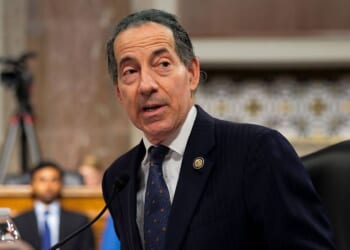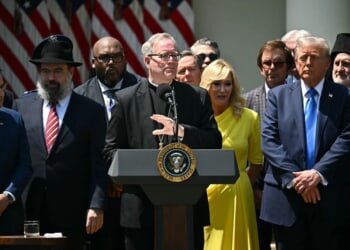IN THE UNITED STATES DISTRICT COURT FOR THE DISTRICT OF COLORADO
TINA PETERS, Applicant
v.
JOHN FEYEN, in his official capacity as Sheriff of Larimer County, Colorado, and PHILIP J. WEISER, in his official capacity as Attorney General of the State of Colorado, Respondents
Civil Action No. 1:25-cv-00425 (STV)
Assigned to District Court Judge Scott T Varholak
Peter Ticktin, Esquire
THE TICKTIN LAW GROUP
270 SW Natura Avenue
Deerfield Beach, FL 33441
(561) 232-2222
[email protected]
TABLE OF CONTENTS
TABLE OF AUTHORITIES
Cases
Bradley v. Fisher, 80 U.S. 335, 13 Wall. 335, 20 L.Ed. 646 (1871)
Bush v. Palm Beach County Canvassing Bd., 531 U.S. 70 (2000)
Curling v. Raffensperger, 494 F. Supp. 1264 (October 2020)
Gardner v. Bangerter, 46 F.3d 1151 (10th Cir. 1993)
Miller v. Davis, 521 F.3d 1142 (9th Cir. 2008)
Norma Jean Anderson, et al. v. Donald Trump, et al., U.S. Supreme Court, March 4, 2024
Stump v. Sparkman, 435 U.S. 349, 362-364, 98 S.Ct. 1099, 55 L.Ed.2d 331 (1978)
Trump v. United States, Record No. 23-939, July 1, 2024
United States v. Arizona, 567 U.S. 387 (2012)
United States v. Brewster, 408 U.S. 501, (1971)
United States v. Johnson, 383 U.S. 169, 172, 178 (1966)
Statutes
14th Amendment, Section 3
18 U.S.C. § 1512(c)
28 U.S.C. § 2254
28 U.S.C. § 2254(b)
52 U.S.C. § 20701
52 U.S.C. § 20706
52 U.S.C. § 21081(a)
Article II, Section 1, Clause 2 of the U.S. Constitution
Article VI, Clause 2
C.R.S. § 1-1-110(3)
C.R.S. § 1-5-605.5
C.R.S. 24-50.5-103
Colorado Election Rule 20.5.3(b)
Supremacy Clause of the U.S. Constitution
Rules
Cir. R. 32(a)(1)
Fed. R. App. P. 32(a)(5)
Fed. R. App. P. 32(a)(6)
Fed. R. App. P. 32(a)(7)(B)(iii)
Fed. R. App. P. 32(a)(7)(C)
FRAP 29(a)(4)(E)
FRAP RULE 26.1
FRAP RULE 26.1 AND FRAP 29(a)(4)(E) DISCLOSURE STATEMENT
In compliance with Federal Rules of Appellate Procedure (“FRAP”) Rule 29(a)(4)(E), proposed Amicus is a non-profit public interest organization which does not own nor is it owned by any other entity. It is governed by its Board of Directors. Amicus is not aware of any possibility that any of the Court’s Judges or staff or their families have any economic relationship with this small organization. No investment fund has or could own any stock in this non-profit organization.
Amicus may seek donations to defray the costs of this brief. However, none of the funding or concepts or decisions concerning this brief have been supplied by any attorney or staff connected with the underlying case or these topics. No donor is allowed to determine the content of this brief or dictate the professional judgment of the legal staff drafting it.
No counsel for a party authored this brief in whole or in part, and no counsel or party made a monetary contribution intended to fund the preparation or submission of this brief. No person other than Amicus Curiae, its members, or its counsel made a monetary contribution to its preparation or submission.
STATEMENT OF INTEREST OF AMICUS CURIAE
Proposed Amicus Curiae, the American Rights Alliance (ARA), is an IRS Code 501(c)(3) nonprofit, tax-deductible organization. ARA is a coalition of legal professionals, advocates, and strategists committed to defending the First Amendment, protecting election integrity, and ensuring transparency in democratic processes. ARA works to expose fraud, misconduct, and censorship while empowering individuals to speak freely and without fear. We stand as a shield for those whose voices are marginalized and as a force holding systems accountable to safeguard the core principles of a free and just society.
The ARA, founded by attorney Evan Turk and represented herein by attorney Peter Ticktin, comprises distinguished legal advocates dedicated to preserving constitutional governance and protecting the separation of powers.
Amicus A.R.A.’s spokesman Treniss Evans became involved as a potential witness in Norma Jean. He filed an Amicus Curiae brief in the Colorado Supreme Court and the U.S. Supreme Court because of the misuse of information about him in the trial court in Colorado, illustrating that the House Select Committee to Investigate the January 6 Attack on the U.S. Capitol reports are false and unreliable and should never have been relied upon in lieu of the testimony of live witnesses.
Amicus is described at www.AmericanRightsAlliance.org and accessible at 303 Evernia Street, Suite 300, West Palm Beach, Florida 33401.
PROCEDURAL POSTURE
The Defendant Tina Peters has a broad-based appeal pending to the Colorado Court of Appeals but also, due to severe health concerns and the injustice of detention, has filed a 28 U.S.C. § 2254 habeas corpus petition for release from incarceration—and thereby access to necessary medical care—pending her appeal on the main topics. The violation of her civil rights and constitutional rights support habeas relief of release pending the outcome of all appeals.
If the court finds that the judgment was rendered without jurisdiction, or that the sentence imposed was not authorized by law or otherwise open to collateral attack, or that there has been such a denial or infringement of the constitutional rights of the prisoner as to render the judgment vulnerable to collateral attack, the court shall vacate and set the judgment aside and shall discharge the prisoner or resentence him or grant a new trial or correct the sentence as may appear appropriate.
28 U.S.C. § 2254(b)
INTRODUCTION AND SUMMARY OF THE ARGUMENT
Nothing says that there was something wrong with the presidential election held on November 3, 2020, more than the prosecution of those who tried to ensure that the election was fair and accurate by using the criminal law to silence whistleblowers and by destroying evidence starting on around April 30, 2021.
Tina Peters has been prosecuted for exposing criminal misconduct of other Colorado officials—whether she intended that at the time or not. The Colorado Attorney General is even guilty of the now famous 18 U.S.C. § 1512(c) obstruction of an official proceeding—as well as attempted destruction of evidence (attempted in Peters’ district, but surely completed in other parts of Colorado).
This case arose from Ms. Peters’ performance of her legal duties as the elected Clerk and Recorder of Mesa County and the “chief election official for the county,” C.R.S. §1-1-110(3), the custodian of the county’s voting system, C.R.S. §1-5-605.5, and, from the perspective of federal law, an “officer of election,” 52 U.S.C. §20706, charged with ensuring compliance with federal requirements governing the election of federal officers. 52 U.S.C. §21081(a).
Tina Peters was at that time the County Clerk of Mesa County, Colorado, responsible for the 2020 presidential election in her official capacity as a Colorado government official. Shortly after the election, Peters was ordered by the Secretary of State Jena Griswold to install an upgrade to the election software of Mesa County, which Griswold and the computer vendor announced unreservedly would render the November 3, 2020, election data of the Presidential election unavailable. Thus, everyone involved except for Tina Peters was violating Federal criminal laws. Ironically, the only person who did not commit any crime was Tina Peters.
Tina Peters’ “crime” was to preserve a copy of the digital election records prior to the alteration of the software and database. She arranged a qualified expert to oversee the purported software “upgrade” mandated by the Secretary of State that would have erased election records in violation of 52 U.S.C. §20701.
The substantive controversies at the heart of her state prosecution center on Ms. Peters’ legal duty to preserve election records and data, both under State and Federal requirements, and the fact that Federal laws that mandated Peters’ heroic and protective behavior pre-empted the State law under the U.S. Constitution’s Supremacy Clause. All judges considering this matter should recall the Supremacy Clause’s exact wording, which explicitly commands “and the Judges in every State shall be bound thereby.”
As explained by attorney McSweeney in Tina Peters’ pleadings: “During the software modification, Ms. Peters took steps to memorialize the process and the data by making a video recording and photographs on her cell phone. Representatives from the Secretary of State’s Office and of the vendor were aware she was filming and did not object. App 573:16-25.
No statute or regulation prohibited Ms. Peters from making the video or taking pictures with her cellphone. At the time, no Rule restricted a consultant selected by Ms. Peters from attending the installation. In fact, as the custodian of the voting system under Colorado law, the facility in which the EMS was located was, in an institutional sense, ‘her’ facility. At that time, neither the Secretary of State nor anyone else had the authority, other than the Clerk, to mandate how any activity, most especially activity directly affecting the EMS and the records of elections, was to be conducted, much less to impose requirements restricting access to the EMS facility. Under Colorado Election Rule 20.5.3(b) then in effect, Ms. Peters was entitled to have Mr. [Conan] Hayes (or whoever she chose) attend the installation provided that she personally accompanied Mr. Hayes. Thus, the Secretary of State had no authority to impose any restrictions on access to the software ‘upgrade’ installation or on Ms. Peters’ discretion to bring into the EMS facility any individual she chose.”
Each order furthering the criminal prosecution of the Defendant, Tina Peters, was void ab initio and is a nullity because Peters enjoys the same immunity for official acts as the judge of this Court, the Judges of the State of Colorado, the Attorney General of Colorado, and the Sheriffs and their deputies of Colorado. Each and every judge reviewing Peters’ case stands on the same immunity from criminal prosecution or even inquiry for acts even arguably within their official duties and acts, as Tina Peters, as informed by the necessary exercise of their official judgment. See, Trump v. United States, Record No. 23-939, July 1, 2024, available here.
Where Trump, id. also depended on the separation of the three co-equal branches, it did so largely in wrestling with whether the asserted conduct was or was not official conduct. No such uncertainty exists in the case sub juris.
Here, Tina Peters was prosecuted for preserving evidence which was being destroyed criminally by acts being committed by those around her. In her official duties and refusing to join in this conduct by Colorado Secretary of State Jena Griswold, Tina Peters preserved copies of election data from the 2020 election, including the Presidential election. Pursuant to Federal law and the manifest conspiracy to destroy those election records intentionally by Griswold and others, Peters created a copy of digital records.
This was not only her legal right, but it was her duty mandated by her office.
ARGUMENT
A. PRESERVATION OF ELECTION RECORDS
Tina Peters’ performance of her federal duty to preserve the records by making forensic images of the Election Management System (EMS) server hard drive resulted in three detailed reports prepared by cybersecurity experts. She submitted these to the Board of County Commissioners, district attorney, and county attorney, explaining the illegal features of the County’s computerized election system. See App 253, 336, 480. The preservation of evidence and the notice was part of her official duties, not something she did ‘under the table’ or nefariously.
As sworn to in his attached Affidavit, computer professional Mr. Rene Picota explains that preservation of data was the first step and highest priority in any work or adjustment to computer equipment. No qualified information technology expert would ever install a software upgrade or do any other work on equipment without first preserving a copy of the data. Peters did what was required and what was “best practices.” The violation of industry standards adds to conclusions of intention and bad faith of others. See Exhibit A, attached.
Everyone involved, other than Tina Peters, sought to obstruct justice, destroy evidence, and obstruct official proceedings in violation of 18 U.S.C. §1512(c). Even if installing the software upgrade would be beneficial, there was no looming election requiring the upgrade to have been rushed at that time. The software vendor honestly and conscientiously warned everyone who would listen that the upgrade would render data of the 2020 election and previous elections unavailable. But that did not deter Colorado officials.
Based on the extensive analysis of three cybersecurity experts of the forensic images of the Mesa County EMS hard drive Ms. Peters secured—analyses contained in reports Ms. Peters submitted to the Board of County Commissioners, App 253, 336, 480—Ms. Peters expressed grave concern about the illegal features of the voting system used in Mesa County. As Ms. Peters explained in transmitting the second report to the recipients:
I had these images taken to preserve election records and help determine whether the county should continue to utilize the equipment from this vendor. Because the enclosed report reveals shocking vulnerabilities and defects in the current system, placing my office and other county clerks in legal jeopardy, I am forwarding this to the county attorney and to you so that the county may assess its legal position appropriately. Then, the public must know that its voting systems are fundamentally flawed, illegal, and inherently unreliable. App 335.
Ms. Peters went on:
[I]t appears that our county’s voting system was illegally certified and illegally configured in such a way that “vote totals can easily be changed.” We have been assured for years that external intrusions are impossible because these systems are “air gapped,” contain no modems, and cannot be accessed over the internet. It turns out that these assurances were false. In fact, the Mesa County voting system alone was found to contain thirty-six (36) wireless devices, and the system was configured to allow “any computer in the world” to connect to our EMS server. For this and other reasons—for example, the experts found uncertified software that had been illegally installed on the EMS server—our system violates the federal voting System Standards that are mandated by Colorado law. Id.
In 2019, U.S. Senator Amy Klobuchar (D-MN), along with several of her Democratic colleagues, observed:
Election security experts have noted for years that our nation’s election systems and infrastructure are under serious threat… researchers recently uncovered previously undisclosed vulnerabilities… these problems threaten the integrity of our elections and demonstrate the importance of election systems that are strong, durable, and not vulnerable to attack.
Letter from Sens. Amy Klobuchar (D-MN), Elizabeth Warren (D-MA), Ron Wyden (D-OR), and Rep. Mark Pocan (D-WI) to Michael McCarthy, Chairman, McCarthy Grp. (Dec. 6, 2019).
The vulnerability of electronic voting systems to hacking and manipulation has been the subject of litigation. In one of the most thorough judicial analyses of the issue, in Curling v. Raffensperger, 494 F. Supp. 1264 (October 2020), U.S. District Judge Amy Totenberg received testimony from several leading cyber experts on the vulnerabilities of Dominion computer election equipment. In her October 11, 2020, opinion, Judge Totenberg stated that:
[a] broad consensus now exists among the nation’s cybersecurity experts recognizing the capacity for the unobserved injection of malware into computer systems to circumvent and access key codes and hash values to generate fraudulent codes and data.
493 F.Supp.3d 1264, 1280 (N.D. Ga. 2020).
Notably, Judge Totenberg’s opinion was before the November 3, 2020, Presidential election, and the case was filed months before the election. And at the time, most people—certainly Trump supporters—expected Trump to win handily. Yet Republicans fought for integrity and legal correction in the election long before any results from the election were known. Totenberg’s opinion went on to conclude that “[t]he Plaintiffs’ national cybersecurity experts convincingly present evidence that this is not a question of ‘might this actually happen?’—but ‘when it will happen.’” Id., at 1342.
Meanwhile, the clerk of Williamson County, Tennessee, found an anomaly in the software supplied by the same vendor used in Mesa County, Colorado, but acting properly in that case, the Tennessee Secretary of State and the U.S. Election Assistance Commission conducted an investigation in which the same vendor as here disclosed that its software caused an inaccurate vote tally. App 623-627.
B. PROSECUTION OF TINA PETERS VIOLATES OFFICIAL IMMUNITY
The analysis parallels judges, since a judicial act is very broad and varied, much like those acts of a President:
Liability to answer to everyone who might feel himself aggrieved by the action of the judge, would be inconsistent with the possession of this freedom, and would destroy that independence without which no judiciary can be either respectable or useful.
Nor can this exemption of the judges from civil liability be affected by the motives with which their judicial acts are performed. The purity of their motives cannot in this way be the subject of judicial inquiry.
Bradley v. Fisher, 80 U.S. 335, 13 Wall. 335, 20 L.Ed. 646 (1871)
Furthermore, as even respondents have admitted, at the time he approved the petition presented to him by Mrs. McFarlin, Judge Stump was “acting as a county circuit court judge.” We may infer from the record that it was only because Judge Stump served in that position that Mrs. McFarlin, on the advice of counsel, submitted the petition to him for his approval…
Disagreement with the action taken by the judge, however, does not justify depriving that judge of his immunity. Despite the unfairness to litigants that sometimes results, the doctrine of judicial immunity is thought to be in the best interests of “the proper administration of justice… [, for it allows] a judicial officer, in exercising the authority vested in him [to] be free to act upon his own convictions, without apprehension of personal consequences to himself.”
Stump v. Sparkman, 435 U.S. 349, 362-364, 98 S.Ct. 1099, 55 L.Ed.2d 331 (1978).
Although Governor Davis’ review of Miller’s parole grant, based on his erroneous reading of Article V, §8(b), was in excess of his authority, it was not an act done in the “clear absence of all jurisdiction.”
Miller v. Davis, 521 F.3d 1142 (9th Cir. 2008)
Even if we assume that the Defendants were performing a discretionary rather than ministerial function in signing and enforcing a law, it is unmistakably clear that the Defendants are entitled to qualified immunity because their conduct was objectively legally reasonable.
Gardner v. Bangerter, 46 F.3d 1151 (10th Cir. 1993)
Meanwhile, the Speech and Debate Clause of the U.S. Constitution, Article I, Section 6, Clause 1 provides that Members of Congress cannot be made to answer for “legislative acts” in Congress. This Clause is limited to Congress, but it does endorse the immunity concept.
C. PROSECUTION OF TINA PETERS VIOLATES FEDERAL LAW REGARDING THE PRESERVATION OF ELECTION RECORDS
52 U.S.C. §20701. “Retention and preservation of records and papers by officers of elections; deposit with custodian; penalty for violation” requires:
Every officer of election shall retain and preserve, for a period of twenty-two months from the date of any general, special, or primary election of which candidates for the office of President, Vice President, presidential elector, Member of the Senate, Member of the House of Representatives, or Resident Commissioner from the Commonwealth of Puerto Rico are voted for, all records and papers which come into his possession relating to any application, registration, payment of poll tax, or other act requisite to voting in such election…
Every person in Colorado involved in the May 2021 installation of software upgrades which failed to retain “all records and papers” from the November 3, 2020, Presidential election for 22 months committed a crime—except Tina Peters.
The Secretary of State Jena Griswold placed Tina Peters in the posture of either breaking a Federal law 52 U.S.C. §20701 or angering the domineering and self-important abuse of Griswold. Tina Peters could commit no crime when commanded by 52 U.S.C. §20701 to retain “all records and papers” from the November 3, 2020, Presidential election for 22 months and doing so.
D. FEDERAL LAW PRE-EMPTS UNDER SUPREMACY CLAUSE
Furthermore, 52 U.S.C. §20701 pre-empts and predominates over the Secretary of State’s unauthorized directives concerning the software upgrade under the Supremacy Clause of the U.S. Constitution.
Article VI, Clause 2 requires that:
This Constitution, and the Laws of the United States which shall be made in Pursuance thereof; and all Treaties made, or which shall be made, under the Authority of the United States, shall be the supreme Law of the Land; and the Judges in every State shall be bound thereby, any Thing in the Constitution or Laws of any State to the Contrary notwithstanding.
In any contest between 52 U.S.C. §20701 and Colorado State law or administrative directives, Federal law controls and only Federal law counts.
Furthermore, Colorado, like all the other States and voting Districts, have no power or authority to participate in the selection of a President of the United States other than the express commands of Article II, Section 1, Clause 2 of the U.S. Constitution. In other words, the authority of state officials comes from Federal law exclusively, from the Constitution itself. As a result, Ms. Peters’ obedience to Federal law concerning the election for President in 2020 is exceptionally powerful in this set of facts, and her actions to vindicate Federal law are unassailable.
E. U.S. SUPREME COURT DECIDED IN NORMA JEAN THAT STATE LAW IN ELECTIONS IS PRE-EMPTED BY ANY NATION-WIDE APPLICATION OF FEDERAL LAW
The U.S. Supreme Court just decided this very question, specifically with regard to Colorado. As the U.S. Supreme Court ruled in March 2024, Colorado courts may not have or prosecute their own local version of Federal law. This distinction was just enshrined 9-0. See, Opinion, per curiam, Norma Jean Anderson, et al. v. Donald Trump, et al., U.S. Supreme Court, March 4, 2024, available here.
There, the rights of Colorado State to engage in a wide range of activities measuring in dozens of State functions was obviously recognized. The extensive role that a State’s own laws and procedures like those of Colorado plays within a presidential election was clearly recognized, weighed, and evaluated.
Nevertheless, the U.S. Supreme Court struck down as unconstitutional Colorado pursuing its own individual interpretation of the 14th Amendment, Section 3. Colorado cannot follow or apply its own Colorado-only version of Federal law. Federal law is Federal law, and it must be the same in all 50 States and voting Districts. See also, United States v. Arizona, 567 U.S. 387 (2012).
For Colorado to prosecute an individual under the State’s own version of election laws that flouts a uniform national standard is a violation of the Supremacy Clause of the U.S. Constitution.
F. PROSECUTION OF TINA PETERS VIOLATED WHISTLEBLOWER PROTECTION ACT OF 1989
Although Peters was prosecuted unlawfully by Colorado Attorney General Philip J. Weiser, this was requested by complaint of effectively Peters’ supervisor, the Secretary of State Jena Griswold. The Whistleblower Protection Act in Colorado, C.R.S. 24-50.5-103, referred to as the “Whistleblower Protection Act,” serves as a cornerstone of whistleblower protection for state employees in Colorado. The statute prohibits retaliation against state employees who report suspected violations of state or federal law, rules, or regulations.
Under these facts as briefed in the principal parties’ briefs, Peters was illegally prosecuted for refusing to cooperate in the destruction of election data from the 2020 presidential election in violation of Federal law. Faced with a Hobson’s Choice, torn in two directions, Peters acted to preserve the election data during the obviously incompetent or intentionally destructive scheduled installation of a software upgrade.
Peters is entitled to protection from retaliation under the Colorado and Federal whistleblower laws.
G. “AFFILIATED WITH” THE WRONG PEOPLE
Under her complete authority and discretion as part of her job as County Clerk, Ms. Peters asked the Mesa County, Colorado Information Technology Department to oversee the installation of the software upgrade to the County’s election voting system, but the Department declined because it had no experience or training in the computerized voting system involved. App 569.
Therefore, the record is clear that Conan Hayes was chosen because he was experienced with the computer procedure, having first requested that the Mesa County IT Department do the job. Only when County employees declined did Peters try to find someone who felt qualified to monitor on her behalf the software upgrades which admittedly would destroy election data or make it unavailable.
The States have no authority—as States—to participate in the selection of the nation’s President but for the express delegation from the U.S. Constitution, Article II, Section 1, Clause 2.
In Bush v. Palm Beach County Canvassing Bd., 531 U.S. 70 (2000), the Supreme Court made the matter unmistakably clear:
But in the case of a law enacted by a state legislature applicable not only to elections to state offices, but also to the selection of Presidential electors, the legislature is not acting solely under the authority given it by the people of the state, but by virtue of a direct grant of authority made under Art. II, §1, cl. 2, of the United States Constitution.
As a result, the Federal command for preservation of records of recent elections under 52 U.S.C. §20701 controls in every respect all aspects of the election and everything related to it. The preservation of election records of a Presidential election for 22 months predominates and supersedes any State law, directive of the Secretary of State, or prosecution by the Attorney General.
However, the prosecution of Peters was founded on the irrational notion that Peters used a computer consultant “affiliated with” “My Pillow” chief executive Mike Lindell, a prominent promoter of proven evidence that voting machines are imperfect, like all machines ever built by human hands without exception, and are vulnerable to error or intentional manipulation. This embarrassingly idiotic ad hominem attack has become commonplace in our post-rational society.
“Affiliated with” is a content-free, meaningless phrase. It means nothing. There is no definition or standard of what “affiliated with” is or how to test for it. Most of the country is “affiliated with” Disney, having watched Disney movies at some point.
Conspicuously lacking is any allegation, much less proof, that Conan Hayes, a federal cybersecurity expert with active government security clearances, did anything but an excellent job—unbiased, accurate, fair, and professional.
CONCLUSION
We should recall that an overwhelmingly Republican precinct in Antrim, Michigan, reported 8,000 votes for Joe Biden and only 2,000 for Trump. When this was challenged, the totals in the voting machines were flipped, seemingly at the wave of a hand. The ease with which voting totals could be erroneously tabulated and then just as easily changed alarmed the entire nation to the fragile and unreliable nature of the voting machines. This became a scandal that set off a nationwide alarm. For example, as part of the desperate scramble to hide the fraud in the election, AFP Fact Check reassured the nation that the massively erroneous election results were a result of “user error” instead of a “software error.” See here.
This, of course, does nothing to give any confidence to the results of the election. The absurdity of commenting on the massive errors in the election results by saying it’s all right because it was caused by one type of error instead of a different type of error reveals a profound dishonesty.
In other words, the conspiracy theorists have reversed the chicken and the egg: Demonstrated errors in the election came first. Commenting on them came second. Alarm about the integrity of our elections arose spontaneously from real-world failures of the election system, not as a result of anyone’s advocacy.
THE TICKTIN LAW GROUP
270 SW Natura Avenue
Deerfield Beach, Florida 33441
Telephone: (954) 570-6757
/s/ Peter Ticktin
PETER TICKTIN
Florida Bar No. 887935
CERTIFICATE OF COMPLIANCE
Pursuant to Fed. R. App. P. 32(a)(7)(C), I hereby certify that this brief complies with the type-volume limitation because it contains 4,530 words, excluding the parts exempted by Fed. R. App. P. 32(a)(7)(B)(iii) and Cir. R. 32(a)(1). I further certify that this brief complies with the typeface requirements of Fed. R. App. P. 32(a)(5) and the typeface style requirements of Fed. R. App. P. 32(a)(6) because the brief was prepared in 14-point Times New Roman font using Microsoft Word.
/s/ Peter Ticktin, Esq.
CERTIFICATE OF SERVICE
I served this document on May 2, 2025, by electronic mail and posting through the ECF system as follows:
Daniel P. Rubinstein
District Attorney
Robert S. Shapiro
Special Deputy District Attorney
District Attorney’s Office Twenty-First Judicial District of Colorado
P.O. Box 20,000
Grand Junction, CO 81502-5031
Phone Number: (970) 244-1730
Fax Number: (970) 244-1729
Email: [email protected]
John Case
John Case, P.C.
6901 South Pierce Street #340
Littleton, CO 80128
(303) 667-7407
Email: brief@johncaselaw
Patrick M. McSweeney
Robert J. Cynkar
McSweeney, Cynkar & Kachouroff, PLLC
3358 John Tree Hill Road
Powhatan, VA 23139
(804) 937-0895
Email: [email protected]
THE TICKTIN LAW GROUP
270 SW Natura Avenue
Deerfield Beach, Florida 33441
Telephone: (954) 570-6757
/s/ Peter Ticktin
PETER TICKTIN
Florida Bar No. 887935












